Customer Encryption

What are the benefits of using data encryption in business ?
Data encryption in business offers protection of sensitive information, compliance with legal requirements, enhanced customer trust, defense against cyber threats, and controlled data access. It ensures confidentiality and integrity of communications, helps meet regulatory standards, safeguards personal data, builds customer confidence, mitigates risks of data breaches, guards against malware and ransomware, provides role-based access control, and simplifies key management. This makes encryption an essential tool for securing digital assets and strengthening a company's market position.

Is data encryption necessary for all types of businesses and industries ?
The Importance of Data Encryption in Modern Business Operations Data encryption is a crucial aspect of modern business operations, ensuring confidentiality, integrity, and availability of sensitive information. Different types of businesses and industries handle varying degrees of sensitive data, requiring robust security measures. Healthcare, finance, e-commerce, and legal sectors are examples where encryption is necessary due to the nature of the data they handle or regulatory requirements. However, the necessity of implementing encryption can depend on factors such as the type and amount of sensitive data, risk assessment, and compliance with legal requirements. To implement data encryption, businesses must assess their needs, develop a data protection policy, choose appropriate technologies, integrate them into systems and processes, and regularly monitor and maintain these measures. While not always necessary for every business, data encryption is often a wise investment that can protect sensitive information and ensure business continuity.

What is data encryption and how does it work ?
Data encryption is a crucial cybersecurity measure that transforms plaintext into ciphertext, protecting it from unauthorized access. It involves the use of complex algorithms and secret decryption keys. Encryption is significant for securing data at rest, in transit, and during processing, helping meet compliance requirements and reducing financial risks associated with data breaches. Its evolution includes historical precursors and wartime innovations, with AI expected to enhance its capabilities in the future.

How does symmetric key encryption differ from asymmetric key encryption ?
Symmetric key encryption and asymmetric key encryption are two different methods of securing data. Symmetric key encryption uses a single secret key for both encryption and decryption, while asymmetric key encryption uses a pair of keys (public and private). Symmetric key encryption has challenges with key distribution as the secret key must be shared securely between the sender and receiver without being intercepted by an attacker. In contrast, asymmetric key encryption has easier key distribution as the public key can be shared openly without compromising security. In terms of computational complexity, symmetric key encryption is generally faster and more efficient than asymmetric key encryption due to simpler mathematical operations involved. However, asymmetric key encryption is slower and more computationally intensive due to complex mathematical algorithms used.

What are the different types of data encryption algorithms ?
Data encryption algorithms are crucial for securing digital information. They can be categorized into symmetric key, asymmetric key, hashing, stream ciphers, block ciphers, and hybrid encryption systems. Each type has its own strengths and is used in different scenarios to ensure data privacy and integrity.

What is the role of encryption in securing data transmission ?
Encryption is crucial for securing data transmission by converting plain text into unreadable ciphertext, ensuring confidentiality, integrity, and authentication. It protects sensitive information, prevents data tampering, enhances trust, complies with regulations, and reduces the risk of data breaches. Two main types of encryption are symmetric and asymmetric encryption, each using different keys for encryption and decryption.

How does Fintech improve customer experience in banking ?
Fintech has transformed the banking industry by providing innovative solutions that improve customer experience. It offers personalized services, faster transactions, enhanced security, and innovative features. Fintech companies provide a seamless user interface, personalized financial advice, customized products, faster transactions, instant access to information, streamlined processes, robust security measures, transparent fees, regulatory compliance, mobile payments, peer-to-peer lending, crowdfunding, and exploration of cryptocurrencies and blockchain technology. These advancements have significantly improved customer experience in banking and will continue to shape the future of banking as technology evolves.

How does encryption work in securing communication channels ?
Encryption is a fundamental technique used to secure communication channels by transforming plaintext data into an unreadable format, known as ciphertext. It involves two main processes: encryption and decryption, and uses algorithms and keys for these processes. There are two primary types of encryption methods: symmetric and asymmetric. Encryption ensures that even if data is intercepted during transmission, it remains unreadable to unauthorized parties. It is vital in various applications to secure communication channels, including email, web browsing, mobile communications, and file transfers.

How does encryption contribute to network security protection ?
Encryption is pivotal for network security, offering robust defense against unauthorized data access and cyber threats. It transforms readable plaintext into ciphertext using sophisticated algorithms, protecting data at rest, in transit, or being processed. Encryption's economic impact is significant, with organizations leveraging it reducing financial impact of data breaches by over USD 220,000. The global encryption software market is projected to hit USD 20.1 billion by 2025. Regulatory compliance and standards are increasingly requiring encryption for data privacy and security. Its historical significance dates back to ancient civilizations, evolving from wartime secrecy to everyday data protection. Network security objectives include preventing unauthorized access, detecting and interrupting cyberattacks, and ensuring authorized user access. Data breaches have costly consequences, with the global average cost standing at USD 4.45 million per incident. A defense in depth approach involves layering multiple security controls between attackers and potential vulnerabilities. In conclusion, encryption is an indispensable component of network security protection, offering a robust defense against unauthorized data access and cyber threats. Its ability to transform plaintext into ciphertext, compliance with regulatory standards, and evolving sophistication through AI illustrate its dynamic role in safeguarding digital communications. For individuals and organizations alike, investing in encryption is not just a recommendation but a necessity for safeguarding against the ever-growing landscape of cyber threats.

Can data encryption prevent data breaches and cyber attacks ?
Data encryption is a crucial security measure that can significantly reduce the risk of data breaches and cyber attacks by converting plain text into an unreadable format. However, it does not completely eliminate the risk of data breaches and cyber attacks. Encryption works through complex algorithms to scramble data so that it appears as random characters, requiring a secret key (or password) to decrypt the data back into its original form. There are two main types of encryption: symmetric and asymmetric. While encryption offers benefits such as confidentiality, integrity, authentication, and non-repudiation, it also has limitations including key management challenges, performance overhead, compatibility issues, human error, and advanced persistent threats (APTs). Therefore, organizations should implement other security measures such as firewalls, intrusion detection systems, regular security audits, and employee training programs to minimize the risk of cyber threats.

**What exactly is end-to-end encryption offered by iCloud ?
End-to-end encryption is a security measure that ensures data transmitted between two endpoints, such as a user's device and iCloud, can only be read by the intended recipient. This means that even if someone intercepts the data during transmission, they will not be able to access or modify it without the proper encryption keys. Key features of end-to-end encryption offered by iCloud include: 1. Data Privacy: End-to-end encryption ensures that your data remains private and secure while being transmitted over the internet. 2. Security: With end-to-end encryption, even Apple cannot access your data because they do not hold the encryption keys. Only you and the recipient of your data have access to the keys needed to decrypt the information. 3. Trustworthiness: By offering end-to-end encryption, iCloud demonstrates its commitment to protecting users' privacy and building trust with its customers. 4. Compliance with Regulations: End-to-end encryption also helps iCloud comply with various regulations related to data protection and privacy, such as the General Data Protection Regulation (GDPR) in Europe and the California Consumer Privacy Act (CCPA) in the United States. 5. User Control: End-to-end encryption gives users more control over their data by allowing them to choose when and how their information is shared. For example, users can decide whether to use end-to-end encryption for specific types of data or for all their data stored in iCloud. Overall, end-to-end encryption offered by iCloud provides several benefits, including enhanced data privacy, security, trustworthiness, compliance with regulations, and user control.
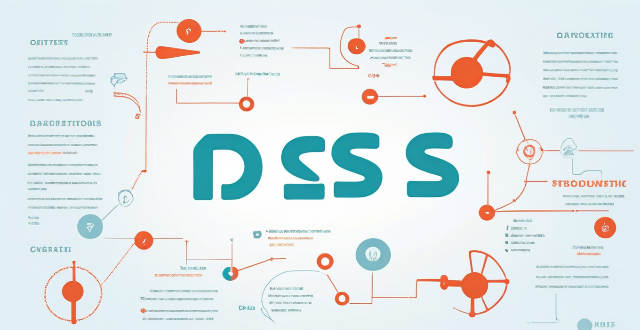
What are the risks associated with weak or improperly implemented data encryption ?
This article discusses the risks associated with weak or improperly implemented data encryption, which can lead to data breaches, loss of trust from customers and stakeholders, legal and regulatory compliance issues, difficulty in recovery, vulnerability to advanced threats, difficulty in detecting breaches, and diminished protection against insider threats. It emphasizes the importance of using strong encryption algorithms, implementing them correctly, and regularly reviewing and updating encryption practices to protect sensitive information and maintain trust.

How can automation be used to improve customer service ?
Automation can significantly enhance customer service by streamlining processes, reducing errors, and providing consistent support. It enables personalized communication through chatbots and email automation, efficient processes via self-service options and backend automation, a consistent experience with standardized responses, cost-effective solutions through scalability, and continuous improvement using feedback loops. As technology progresses, the potential for automation in customer service will continue to expand, leading to more innovative ways to meet customer needs.

How can sports marketing help to build customer loyalty ?
Sports marketing is a powerful tool that can build customer loyalty by leveraging the emotional connection between fans and their favorite teams. Strategies include sponsorships, promotions, giveaways, and social media engagement to create a sense of shared identity and community among customers. Examples include Nike's sponsorship of the Brazilian national football team, Coca-Cola's partnership with the Olympic Games, Budweiser's "Up for Whatever" campaign, McDonald's "McRib" promotion during the World Series, ESPN's social media presence, and Red Bull's extreme sports content on social media channels. By establishing themselves as trusted partners of popular sports teams and events, businesses can increase customer loyalty and brand recognition.

How do I contact customer service for my mobile operator ?
How to Contact Customer Service for Your Mobile Operator
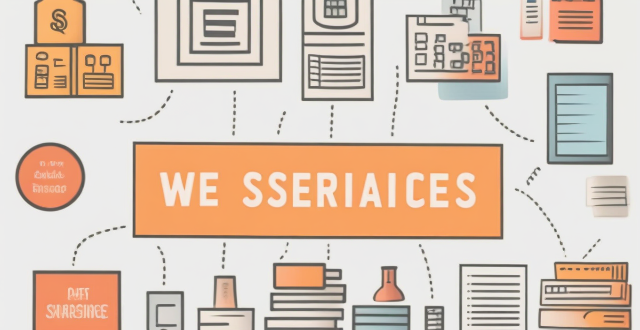
How can I compare different online shopping sites for their customer service ?
In this article, we discuss how to compare different online shopping sites for their customer service. The first step is to research and gather information by reading reviews and testimonials, checking social media presence, and asking for recommendations from friends or family. The second step is to analyze the information by comparing customer service options, evaluating response time, and assessing quality of service. The final step is to make a decision based on weighing pros and cons and trying before you buy. By following these steps, you can choose an online shopping site that offers excellent customer service and meets your needs.

Which shopping apps have a strong focus on customer service and support ?
The provided text discusses the importance of customer service and support in shopping apps. It then goes on to highlight five notable shopping apps—Amazon, Shopify, Etsy, eBay, and Alibaba—that prioritize these aspects. Each app is described in terms of its unique features and services that enhance user experience. For Amazon, it's the live chat and email support, 24/7 availability, and the Mayday button for Fire devices users. Shopify is praised for its multichannel support, extensive knowledge base, and active community forums. Etsy is lauded for its personalized assistance, seller education, and resolution center. eBay's detailed resolution process, security measures, and seller protections are highlighted. Lastly, Alibaba is commended for its Trade Assurance program, legal services, and supplier verification. In conclusion, these shopping apps understand the significance of supporting their users throughout the shopping journey, each offering unique strengths in customer service and support.

What kind of customer feedback has been received so far for the new product ?
The new product has received mostly positive feedback, withThe new product has received mostly positive feedback, with user-friendly interface, speed However, there have been concerns about compatibility issues, software bugs, and pricing. Some customers also mentioned the need for additional features and improvements in customer support services. Overall, the feedback will be used to make necessary improvements and meet customer expectations.

How does data encryption affect computer performance ?
Data encryption is crucial for securing data but can affect computer performance by increasing processor load, memory usage, disk I/O, network latency, and reducing battery life.

How can I ensure the security of my wireless network ?
Securing a wireless network involves changing the default administrator password, using WPA2 encryption, enabling network encryption, using a firewall, and updating firmware regularly.

Why is data encryption important for online security ?
Data encryption is crucial for online security, protecting dataData encryption is crucial for online security, protecting data the financial impact of breaches It has evolved from ancient uses to a critical tool in today's digital landscape, with AI optimizing key management and enhancing algorithms.
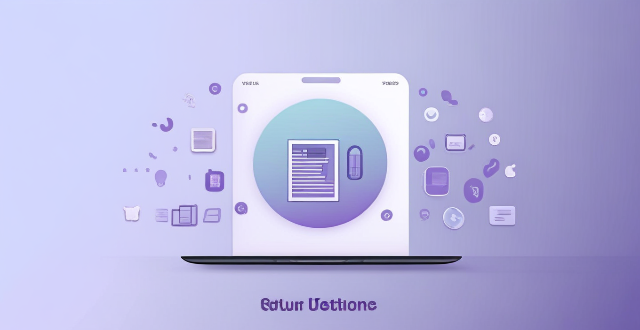
What factors determine the ranking of an online shopping website ?
The ranking of an online shopping website is determined by several factors, including user experience (navigation, search functionality, page load speed, mobile optimization), product quality and variety (descriptions, images/videos, variety), price competitiveness (pricing, promotions/discounts, price comparison tools), security and privacy (payment options, privacy policies, data protection), customer service (support, order tracking, returns process), and reviews and ratings (customer reviews, rating systems, feedback mechanisms). By focusing on these key areas, websites can improve their rankings and attract more customers while providing a seamless shopping experience.

Does Wi-Fi 6 support the latest encryption standards for security ?
Wi-Fi 6, the latest wireless networking technology, not only significantly improves performance but also emphasizes security. It introduces several new features and technologies like OFDMA, MU-MIMO, BSS Coloring, and TWT to enhance data protection and user privacy. Wi-Fi 6 supports advanced encryption protocols such as WPA2 and WPA3, with WPA3 offering improved personal and enterprise network security. New technologies like BSS Coloring and TWT further enhance network security by reducing collisions and minimizing unauthorized access risks. The enhanced version of Wi-Fi 6, known as Wi-Fi 6E, utilizes additional frequency ranges to improve data throughput and create new opportunities for advanced security measures. As Wi-Fi 6 networks become more prevalent, security protocols are continually updated to address emerging threats, ensuring that the networks remain secure well into the future.
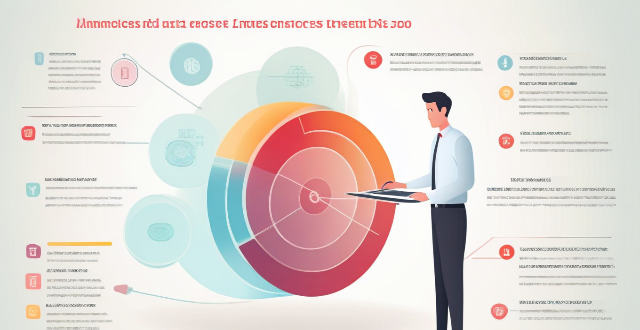
How does network expansion impact customer experience ?
Network expansion improves customer experience by increasing coverage, reducing disconnections, boosting speed and reliability, and enhancing accessibility to services and devices.
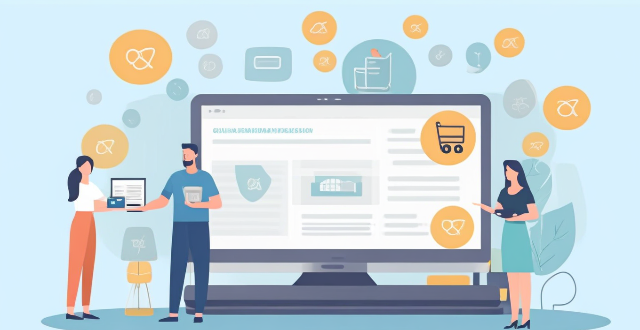
What are some of the most secure online shopping platforms ?
Secure online shopping platforms are essential in protecting personal and financial information. Amazon, eBay, Walmart, Target, Best Buy, and Etsy are some of the most secure online shopping platforms available today. These platforms use advanced security measures such as SSL encryption and two-factor authentication to protect users' data. Additionally, they offer various payment options and excellent customer service. By choosing these reputable platforms, you can enjoy a safe and convenient online shopping experience.

What are the differences between free and paid VPN services ?
The text discusses the key differences between free and paid VPN services, highlighting aspects such as speed and bandwidth, security and encryption, server locations and IP addresses, customer support, and device compatibility and simultaneous connections. It concludes that while free VPN services are cost-effective, they often compromise on speed, security, and reliability. In contrast, paid VPN services offer a more comprehensive and reliable solution for users prioritizing privacy, security, and performance.

How can companies improve their products based on customer reviews ?
Companies can improve their products by listening to customer reviews, addressing negative feedback, encouraging constructive criticism, implementing continuous improvement, and leveraging positive reviews. This involves analyzing feedback using NLP tools, categorizing issues, prioritizing actions, investigating complaints, implementing fixes, communicating changes, creating a supportive environment for honest feedback, establishing a feedback loop, iterating rapidly, monitoring progress, highlighting strengths, celebrating successes, and maintaining quality. By doing so, companies can enhance their offerings and stay relevant in the market.

How do I choose the right VPN service for my needs ?
Choosing the right VPN service is crucial for ensuring your online privacy, security, and accessing geo-restricted content. Here's a guide to help you make an informed decision: 1. Identify Your Needs: Determine what you need the VPN service for, such as privacy and security, accessing geo-restricted content, bypassing censorship, or improving gaming experience. 2. Check the VPN's Location and Jurisdiction: The legal jurisdiction of the VPN provider plays a significant role in your privacy. Look for providers located in countries without strict data retention laws. 3. Encryption and Protocols: The level of encryption and the protocols offered are critical for security. OpenVPN and IKEv2 are considered the most secure and efficient. Avoid VPNs that rely on PPTP or L2TP/IPSec without a separate encryption layer. 4. Server Network and Speed: A vast network of servers worldwide ensures better speed and connectivity. Look for a VPN with numerous servers across different continents. Speed is also crucial, especially if you plan to stream HD videos or download large files. 5. Privacy Policy and Logging: A strict no-logs policy is vital for maintaining your privacy. Always check the privacy policy to ensure they don't collect or share your data. 6. Device Compatibility and User Interface: Choose a VPN that supports all your devices, including smartphones, tablets, and PCs. A user-friendly interface makes it easier to connect and manage your VPN settings. 7. Customer Support: Look for VPNs that offer 24/7 live chat support or at least a responsive ticket system. Good customer service can help resolve technical issues quickly. 8. Price and Value for Money: While free VPNs might seem appealing, they often come with limitations, such as data caps and slower speeds. Paid VPNs offer more features and better performance. Consider the cost against the services provided to determine the best value. 9. Reputation and Reviews: Research the VPN's reputation through reviews and forums. Feedback from other users can provide insights into the reliability and effectiveness of the service. 10. Legal and Ethical Considerations: Ensure that the VPN service you choose complies with local laws and ethical standards. As per the statements from the Ministry of Industry and Information Technology, using a VPN for legitimate business purposes is protected under law. Always use VPNs responsibly and for legitimate purposes. In conclusion, choosing the right VPN service requires careful consideration of your needs, the provider's security measures, server network, privacy policy, device compatibility, customer support, and cost. By following these guidelines, you can find a VPN service that meets your requirements while ensuring your online privacy and security.

How do retailers benefit from offering a buy one get one free promotion ?
Retailers can benefit from offering a "buy one get one free" (BOGO) promotion by attracting new customers, increasing sales, managing inventory more effectively, enhancing brand perception, and collecting valuable customer data. This marketing strategy not only boosts short-term revenue but also helps build long-term customer loyalty and brand equity.

How has Fintech changed the banking industry ?
Fintech has revolutionized the banking industry by enhancing customer experience, improving efficiency and security, introducing innovative products and services, fostering competition, enabling data-driven decision making, and simplifying regulatory compliance.